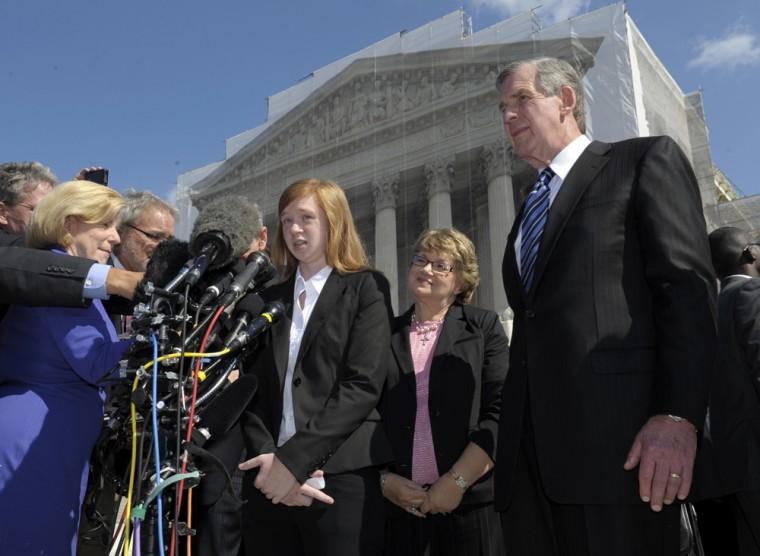Abigail Fisher, the not so proud Tiger.
Fisher, an LSU alumna and Texas native, was denied admission into the University of Texas at Austin because of her race — or so she says.
The fact of the matter is Fisher was denied on the basis of her academic performance, not her race.
Fisher is now 22 years old, living and working in Austin and has made a Supreme Court case out of the matter, the ruling of which could seriously affect future affirmative action legislation.
As for myself, also being a Texas native and from the Houston metro area, I am well aware of the University of Texas’ admissions policy.
Let me break it down for you.
By law, if a person graduates from a Texas high school in the top 10 percent of his or her graduating class, he or she is automatically admitted into any Texas public university.
Fisher was not in the top 10 percent of her graduating class, thus, she was not automatically admitted into the University of Texas.
Recently, the University of Texas has raised the bar, allowing automatic admission for only the top 8 percent of each class and eventually the top 6 percent.
However, Fisher being 22 and myself being 21, at the time of our graduations, the standard was top 10.
This was not by any means an unspoken rule — everyone knew about the top 10 standard. We were familiar with the rewards and fearful of the consequences that came with not meeting the cutoff.
The top 10 rule, by design, allows for top students from lesser performing high schools to have a chance at attending the state’s largest and arguably best university.
It just so happens that under-performing high schools tend to be majority non-white, populated primarily by African-Americans and Latinos.
I’ve heard this argument a thousand times from different people who all share the same grievance as Fisher — why are minority students who aren’t as smart as me getting into the University of Texas and I am not?
All I have to say is, tough shit.
There was a system in place, we all knew about it and some of us worked the system better than others.
I graduated in the top 10 percent of my high school class. By law, had I applied, the University of Texas had to admit me. Short of wiping my ass with the application, I was guaranteed a spot.
Fisher stood a better chance than I did of being admitted because, despite our shared ethnicity, she is female and affirmative action would have worked in her favor.
There is also the chance that Fisher went to a high-performing high school, perhaps a private school with a small number of students, making the top 10 percent only the top two or three students in the graduating class.
Admissions boards take this into account, and plenty of intelligent students from small private schools are admitted each year, despite graduating in the 50th percentile of their classes.
Fisher also could have transferred to a different school. There are plenty of terrible schools in the Houston area. She wouldn’t have had to look far to find a school where she would not have just been in the top 10 percent, but possibly valedictorian.
But Fisher remained in her comfort zone of white-washed Sugar Land, an upper-middle-class Houston suburb.
This is not a race issue. Fisher made it a race issue.
She was not in the top 10 percent, so she was not admitted. Why this case has made it all the way to the highest court in the United States is beyond me.
However, I am confident she will not win.
While the top 10 rule may be an affirmative action program, it’s not without reason. The University of Texas is vastly Caucasian and was in desperate need of diversifying the student body.
Coming from someone who worked to make the top 10, I can confidently say without shame that Fisher needs to let this go.
The end result for her was the same. She’s now working in Austin, living among UT alumni — she just had to work a little harder to get there.
For those who oppose affirmative action, think about the period from 1776 until 1961 as affirmative action for white people, because that’s exactly what it was.
The law was written to ensure the success of whites over everyone else. Is it possible that we’ve leveled the playing field after 200 years of inequality in a mere half century?
I’m sorry you didn’t get to go to your dream school, Ms. Fisher, but if you’re reading this, the only person you can blame is yourself — not the black kid next door.





